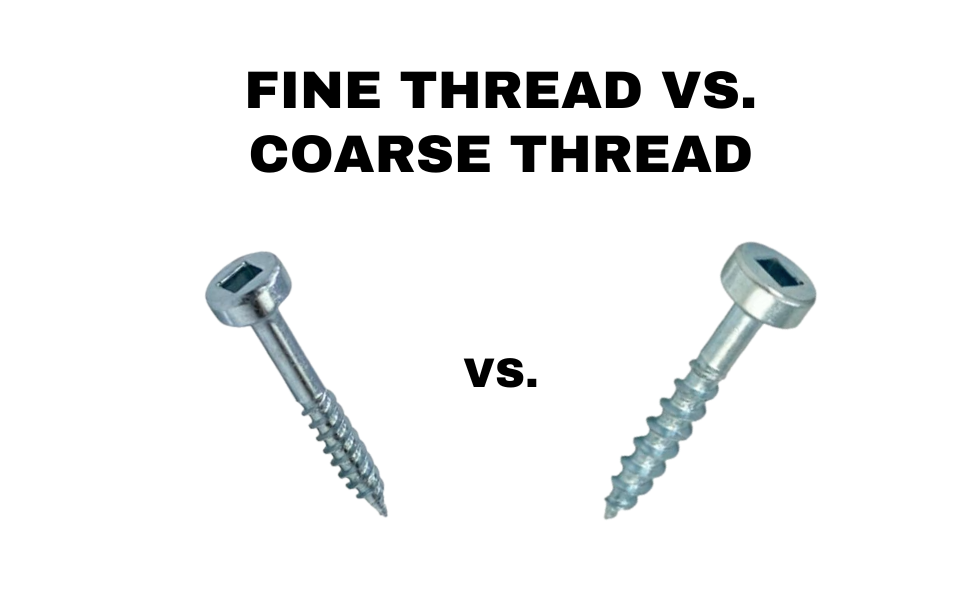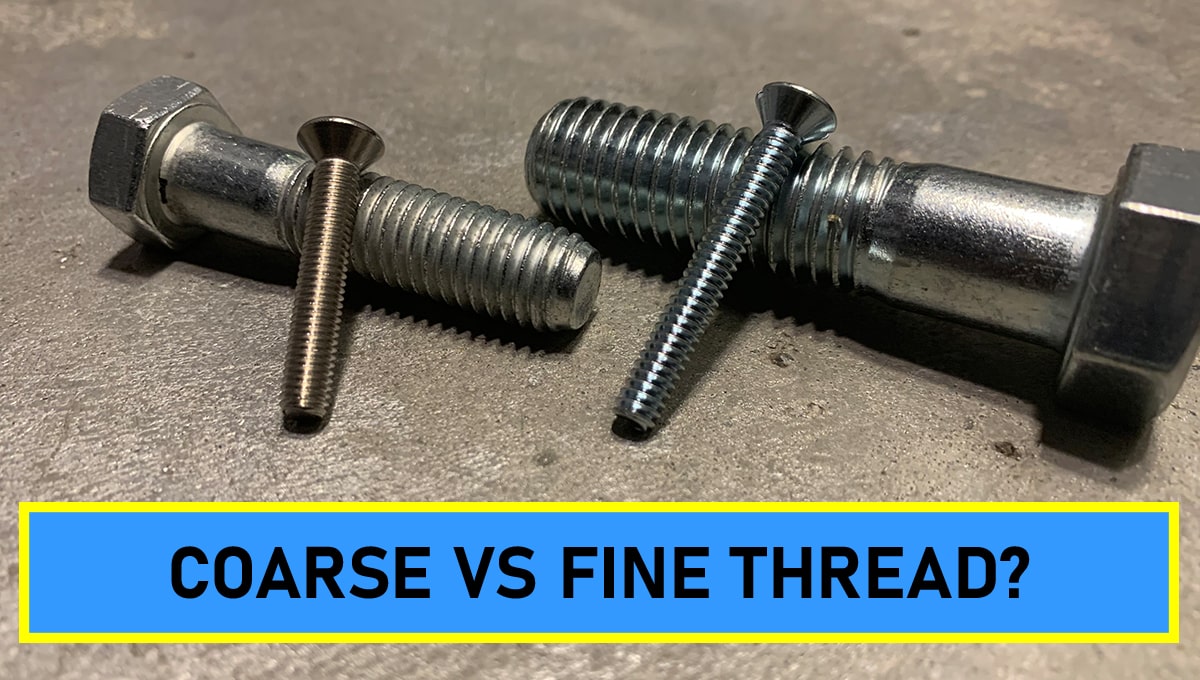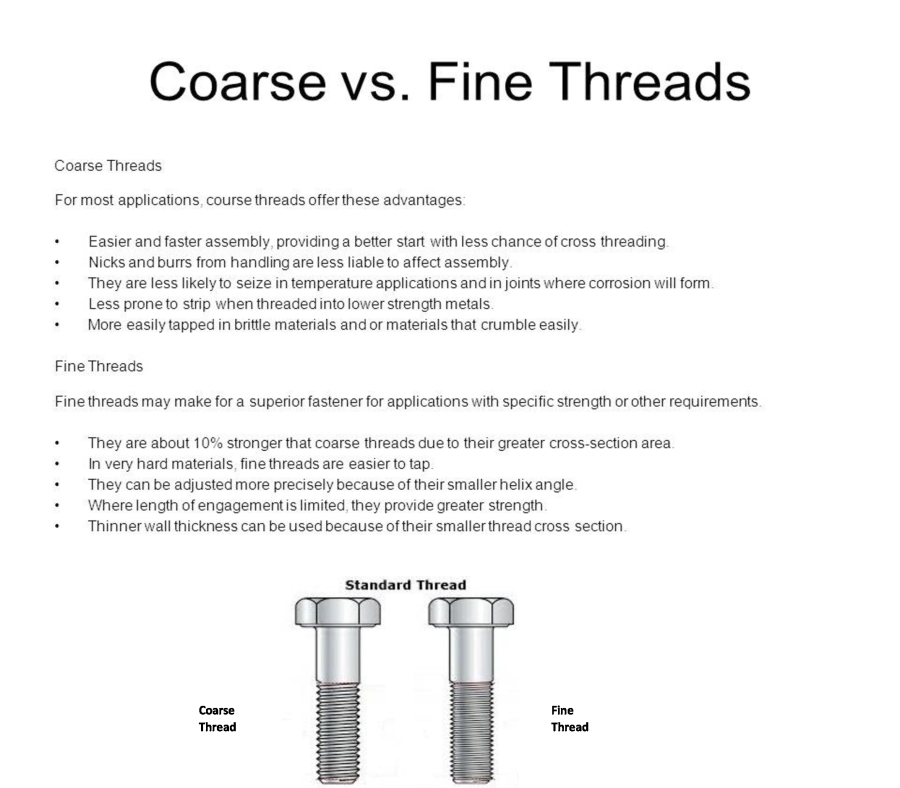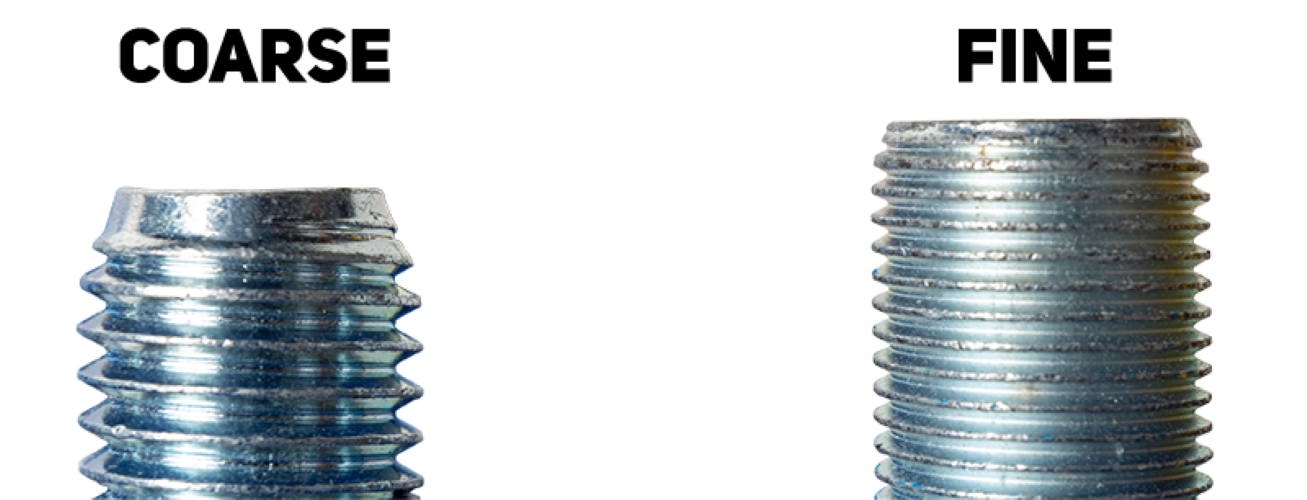
Fine Thread or Coarse Thread Fastener Which is Better? - A fine thread fastener of the same size as a coarse thread fastener would be stronger in tension and shear because of their higher tensile stress area. Understand the differences between fine thread and coarse thread, their pros and cons, and where they are commonly used. They also have larger tensile stress areas which in turn make them stronger in. You should also read this: Drivers Safety Course For Ticket Dismissal

What's The Difference Between Coarse Thread and Fine Thread Screws - + stronger for bolt/screw/nut sizes over one. Fine threaded fasteners are a much better choice when specific measurements are required. Understand the differences between fine thread and coarse thread, their pros and cons, and where they are commonly used. Coarse thread is regarded for its clamping power, ease of assembly, low cost and high shear load bearing ability. Threads have. You should also read this: Five Course Menu

Fine Thread vs Coarse Thread Stenght + Usage SFS USA - Imperial measurements measure the number of thread peaks per inch. Fine threads have many positive aspects to them. Today, we'll break down the difference between fine thread and coarse thread bolts to help you make the right choice for your project. In this article, we will explore the differences between coarse and fine threads, their advantages, and their suitable applications. You should also read this: 9 Course Meal Shrek

Coarse Threads vs Fine Threads Jarvis Cutting Tools - Coarse threads have wider spacing and broader angles, ideal for softer materials and preventing stripping. They also have larger tensile stress areas which in turn make them stronger in tension than coarse threads. Understand the differences between fine thread and coarse thread, their pros and cons, and where they are commonly used. Fine threads are more susceptible to galling than. You should also read this: Top Courses In California

Coarse vs Fine thread? Is there a superior one? ToolHustle - Coarse threads are best suited for applications requiring speed and ease of installation, whilst fine threads are better suited for. Coarse threads are spaced further apart, while fine threads are closer together. Mw components' engineering desk is often asked about the pros and cons of fine vs coarse threads for fasteners. Fine threads are more susceptible to galling than coarse. You should also read this: Hudson Florida Golf Courses

Live Card Pulls! Testing, Testing 1,2,3... By Una Grace When you - Mw components' engineering desk is often asked about the pros and cons of fine vs coarse threads for fasteners. Threads have a smaller pitch, resulting in more threads per inch. Fine threads have a smaller pitch in thread compared to coarse threads, therefore have a higher number of threads per unit length. This is because the fine thread fastener has. You should also read this: Golf Course Elburn Il

Belmey industrial supplies - Fine threads feature a higher tensile strength, making them ideal for strength applications. Coarse threading is when the thread peaks are further apart and bigger. A clear choice between coarse thread vs fine thread is necessary from design perspective. In contrast, a coarse thread fastener equates to a fastener with a low number of threads per distance. The choice between. You should also read this: Golf Courses Near Torch Lake Michigan

Quilt Finishing Techniques Finish Those Quilts with Flair! The Wild - Threads have a smaller pitch, resulting in more threads per inch. + stronger for bolt/screw/nut sizes over one. Coarse threads have a larger pitch, meaning fewer threads per inch compared to. Coarse threads are spaced further apart, while fine threads are closer together. They also have larger tensile stress areas which in turn make them stronger in tension than coarse. You should also read this: Greenbriar Oceanaire Golf Course

Technicals Fastener Thread Charts Fixaball Ltd. Fixings and Fasteners UK - What is the difference between fine and coarse thread fasteners? Coarse thread is regarded for its clamping power, ease of assembly, low cost and high shear load bearing ability. Coarse threads have wider spacing and broader angles, ideal for softer materials and preventing stripping. Understand the differences between fine thread and coarse thread, their pros and cons, and where they. You should also read this: Christman's Windham House Golf Course

Boltmasters For All Your Fasteners - Choose the right thread type for your application. They need longer thread engagements and are more prone to damage and thread fouling. This is because the fine thread fastener has a higher minor diameter. Fine threads have a smaller pitch in thread compared to coarse threads, therefore have a higher number of threads per unit length. Under the same nominal. You should also read this: Maplecrest Golf Course Kenosha Wi